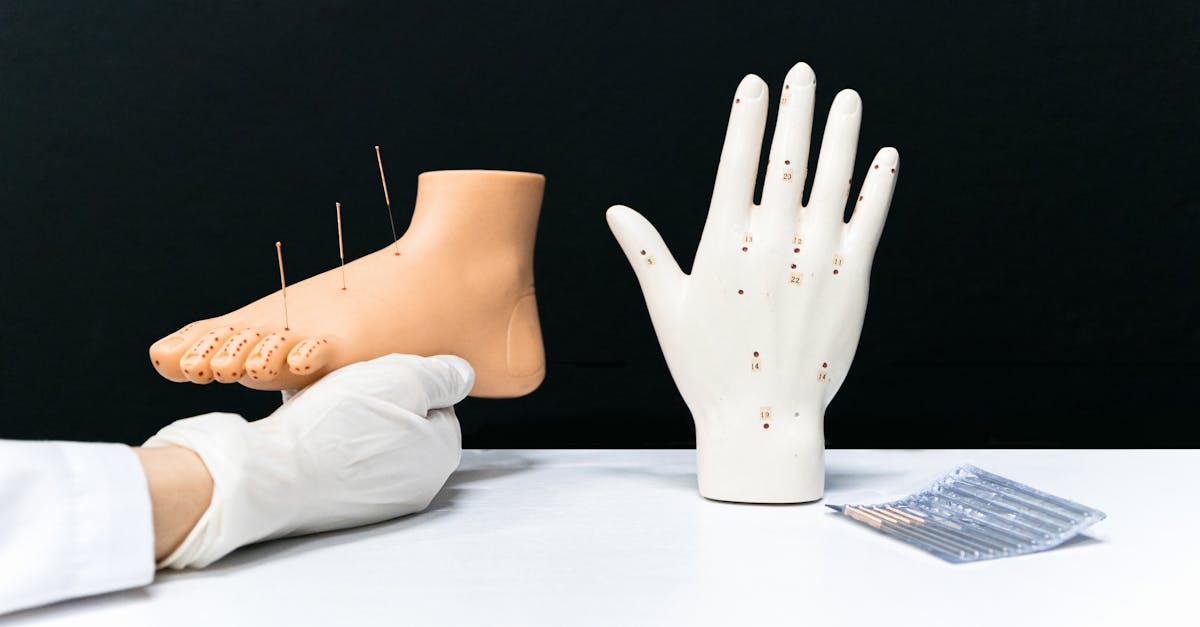L’acupuncture gradually established itself as a complementary treatment essential in oncology, providing support in the management of symptoms and side effects associated with conventional treatments. This age-old practice, based on the circulation ofvital energy Or qi, is integrated into a multidisciplinary approach, aimed at improving the quality of life of cancer patients. Many healthcare facilities, such asMontpellier Cancer Institute, recognize its potential in supporting care by offering an innovative and proven solution to alleviate various symptoms, notably nausea and pain, linked to chemotherapy.

L’ acupuncture is a technique derived from traditional Chinese medicine, which is based on the stimulation of specific points of the body by the insertion of very fine needles. This practice is increasingly recognized as a complementary treatment in the field of oncology. While conventional treatments aim to eradicate cancer, acupuncture is used to alleviate some symptoms and side effects of traditional therapies, such as chemotherapy and radiotherapy.
THE complementary therapies include a range of practices that occur alongside traditional medical care. They are not intended to replace conventional medicine, but rather to offer support that can improve patients’ quality of life. According to studies, approximately 15 to 20% of oncology patients integrate acupuncture into their care pathway, due to its perceived effectiveness in managing pain, nausea and stress.
A major characteristic of acupuncture is its ability to influence the qi, or vital energy, which circulates in the body. Blockages or imbalances in this energy can be associated with disease, including cancer. By restoring the harmonious flow of this energy, acupuncture aims to promote the general well-being of patients.
Acupuncture methodologies in oncology do not just target physical pain. They also include treatment of emotional disorders, such as anxiety and depression, which are common in cancer patients. Many studies credit acupuncture with a significant role in reducing anxiety and discomfort, often amplified by cancer treatments.
In the context of chemotherapy, the use of acupuncture is particularly relevant. Patients undergoing chemotherapy frequently report side effects such as nausea, vomiting, and pain. Acupuncture can help minimize these side effects. For example, research has shown that certain acupuncture techniques are effective in reducing nausea induced by cancer treatments. Activation points located on the wrists are often used for this purpose.
There pain management is another crucial aspect where acupuncture demonstrates its usefulness. Chronic pain linked to the disease, treatments, or secondary lesions are frequent challenges in the oncological journey. Acupuncture, by activating strategic points in the body, can release endorphins and other neurotransmitters, thus contributing to a better feeling of comfort.
THE complementary medicines are not without risks. Although acupuncture is generally considered a safe intervention, it is crucial that patients are informed of possible contraindications. They must, for example, consult their oncologist before starting such a practice, in order to avoid any interference with their current treatments. Healthcare professionals trained in onco-specific acupuncture should be preferred to ensure appropriate care.
In France, establishments like the Montpellier Cancer Institute have integrated acupuncture into their monitoring of oncological patients. This integration of complementary practices in rigorous medical terms is a significant step towards the acceptance of alternative therapies within oncological care.
In addition, acupuncture stands out for its ability to treat conditions that are not always well addressed by conventional medicine. This is particularly the case of sleep disorders. Studies have shown that acupuncture not only reduces insomnia, but also improves sleep quality, which is particularly crucial for patients undergoing cancer treatment.
In the field of research, many studies are being conducted to examine the effectiveness of acupuncture in the treatment of disorders due to cancer. For example, recent research has specifically investigated the impact of acupuncture in pain management associated with oncology. This work is crucial, as it provides an evidentiary basis for clinical practice and paves the way for increased recognition of complementary therapies.
It should also be noted that acupuncture should not be seen as a panacea. Each patient is unique and must be evaluated according to their state of health, the type of cancer, and current treatments. This is why multidisciplinary monitoring is essential, making it possible to bring together oncologists, anesthetists and acupuncture practitioners, to offer an integrated and personalized care pathway.
Regarding research on sleep disorders, some studies have shown promising results. Cancer patients face various stressors that can disrupt their sleep, such as pain, anxiety, and illness-related worries. These can be managed through acupuncture, which offers a holistic approach to treating sleep disorders. For additional information on this subject, you can consult specialized articles here.
It is also worth mentioning that acupuncture, as a complementary practice, can be used in synergy with other methods such as alternative medicine or the phytotherapeutic treatments. Together, these practices can enhance the effectiveness of conventional treatments and improve patients’ quality of life. For example, an integrative approach combining acupuncture and nutritional management can strengthen the immune system of patients undergoing treatment.
In conclusion, acupuncture occupies an increasingly recognized place in the field of oncology, illustrating the interest of alternative medicine as elements of support for traditional treatments. The integration of these practices into the patient care pathway requires close collaboration between doctors, acupuncturists and other health professionals. Multidisciplinary care is the key to offering patients the best chance of recovery and comfort during their care journey.
To learn more about pain management with acupuncture, you can refer to this article here.

Introduction to acupuncture in oncology
Acupuncture is a therapeutic practice that positions itself as a treatment complementary in oncology. It aims to relieve certain symptoms and improve the quality of life of cancer patients. Integrated into a multidisciplinary approach, this method is based on the stimulation of specific points of the body to promote harmony and well-being.
The foundations of acupuncture
Acupuncture is based on the theory that a vital energy, called qi, circulates in our body. Illness and medical treatments can disrupt this circulation, causing various inconveniences. By inserting ultra-fine needles at strategic points, the acupuncturist seeks to restore this energetic balance. This technique is often used to alleviate side effects related to chemotherapy and radiotherapy.
Role of acupuncture in symptom management
In oncology, acupuncture is recognized for its effectiveness in the management of chronic pain, nausea and vomiting induced by treatments. anticancer. Studies show that 15 to 20% of cancer patients incorporate acupuncture into their treatment pathway. This method of relief is particularly popular for its low risk of side effects, making it a safe complement to conventional treatments.
Acupuncture and side effects of chemotherapy
Side effects of chemotherapy, such as fatigue, nausea and pain, can seriously affect patients’ quality of life. Acupuncture has demonstrated the potential to alleviate these symptoms, allowing patients to better tolerate their treatments. In this way, it presents itself as a practical supportive treatment which in no way replaces traditional therapies, but which accompanies them by aiming to improve the patient’s comfort.
Integration of acupuncture into the care pathway
It is essential that the use of acupuncture is done in close collaboration with medical teams. This involves clear communication between patients, acupuncturists and oncologists, in order to develop a treatment plan adapted and personalized. Patients should be informed that acupuncture is a complementary medicine and not an alternative to conventional oncology care. Its integration must aim to complement the main treatments while taking into account the individual needs of patients.
Precautions and contraindications
Although acupuncture is generally considered safe, certain precautions should be observed. It is important to consult a qualified acupuncturist, particularly trained in oncology, in order to avoid complications. Certain medical conditions, such as bleeding disorders or skin infections, may constitute contraindications to the practice of acupuncture. A prior medical assessment is therefore strongly recommended before starting the sessions.
Acupuncture is proving to be a valuable tool for oncology patients. Thanks to its benefits in managing symptoms and side effects of treatments, it helps improve quality of life and general well-being. Its integration within the framework of multidisciplinary care makes it possible to offer comprehensive care adapted to the needs of patients.









